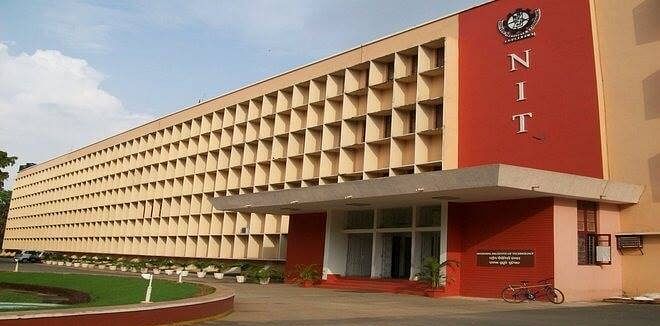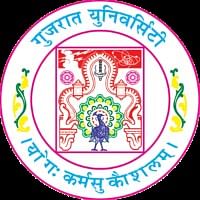M.Sc Life Science

M.Sc Life Science is a two-year postgraduate degree course that deals with the main areas of study about living organisms like plants, animals, and human beings. The students pursuing the M.Sc Life Science course have many job opportunities in India and abroad in multiple domains such as Material Science, Biomedical Science, Chemical and Physical Science, and Engineering.
M.Sc Life Science Course Details
| Degree | Masters |
| Full Form | Master of Science [M.Sc] (Life Science) |
| Duration | 1 Year10 Months |
| Age | No age Limit |
| Subjects Required | Physics, Chemistry , Mathematics and Biology |
| Minimum Percentage | 55% in 10+2 from the recognized Board |
| Average Fees | ₹4K - 50K PA |
| Average Salary | INR 2 - 5 LPA |
| Employment Roles | Manager, Research Scientist, Research Analyst, Food Scientist, Nutritionist, etc |
About M.Sc Life Science
Merriam Webster defines M.Sc Life Science as, "The Master of Science (MS) in Life Science program in the sciences concerned with the study of living organisms, including biology, botany, zoology, microbiology, physiology, biochemistry, and related subjects." M.Sc Life Science duration is two years, and the curriculum for the course is divided into four semesters, respectively. The important subjects of the course are Biochemistry, Ecology, Animal Diversity, Economics and Ethnobotany, Biostatistics, and much more.
Table of Contents
- M.Sc Life Science Eligibility Criteria
- M.Sc Life Science Admission Process
- Popular M.Sc Life Science Entrance Exams
- Top M.Sc Life Science Colleges
- Why Choose M.Sc Life Science?
- M.Sc Life Science Fees Structure
- M.Sc Life Science Syllabus and Subjects
- Preparation Tips for M.Sc Life Science
- Scope of Higher Education for M.Sc Life Science
- M.Sc Life Science Salary
- M.Sc Life Science Career Options
- Skills to Excel
Eligibility Criteria for M.Sc Life Science
Admission for the M.Sc Life Science course in India requires the aspirants to complete their course corresponding to any bachelor's degree related to any science field with a minimum of 50% aggregate marks. Also, along with the essential eligibility criteria, the students pursuing the M.Sc Life Science course must have cleared the standard entrance examination. There is no specific age limit or criteria for getting M.Sc Life Science admission.
Admission Process for M.Sc Life Science
The admission process for M.Sc Life Science in India is carried out either from the college premises or online. The admission process for the course is undertaken strictly based on the scores from B.Sc graduate degree courses and the scores obtained in the entrance exams along with the marks scored in 10+2+3 classes with the science stream. The course falls under the umbrella of the M.Sc course and therefore follows a similar foundation of the study. Listed below are the various procedures to get admission for the M.Sc Life Science course details:
How to Apply?
The aspirants eager to study M.Sc Life Science can either apply online or offline for the course. The aspirants can apply for the M.Sc Life Science course by downloading an admission form available online at the university or on the college website. After submitting the college or university application form, the aspirants will be invited to appear for a written test, personal interview, group discussion, and counseling.
Selection Process
The selection process for the course is carried out based on the entrance exam score relating to science discipline and the marks scored in 10+2+3 along with the graduate degree marks scored to that of the M.Sc Life Science course after the university or college conducts a written test, personal interview, counseling, and group discussion, the aspirants are allocated seats based on various M.Sc in Life Science eligibility criteria fulfilled by the aspirants proposed by the college/university officials.
Popular Entrance Exams for M.Sc Life Science
There are many entrance exams for the M.Sc Life Science course in India for which the students can attend. Appearing for entrance exams is an essential criterion and a good merit score from the graduate degree course in the science field. The graduates can grab a seat for the course in a reputed college or university. Some of the very best and mandatory M.Sc Life Science entrance exams are:
Quick Glance At the M.Sc Life Science Entrance Exams
The M.Sc Life Science eligibility criteria for entrance exams depend entirely on the colleges and universities that conduct the exam. The entrance examinations conducted for the M.Sc Life Science course details include various questions from the B.Sc stream and 11th, 12th, to analyze the aspirants' knowledge and abilities. The test includes:
- MCQ with objective-type questions with a negative marking system.
- The entrance exam is conducted in both English and Hindi languages, and the total time to complete the exam is 2 hours.
- Most of the questions in the entrance exams are merely related to English, general knowledge, reasoning, Numerical Aptitude/Data Interpretation, Analytical Skills, General Aptitude, and some topics related to mathematics and life sciences.
Top 10 M.Sc Life Science Colleges in India
Top M.Sc Life Science colleges in India and abroad offer M.Sc Life Science courses in postgraduate degrees to students interested in learning applications related to science. Some of the very best colleges for M.Sc Life Science colleges in India are as follows:
|
SI.No. |
Name of the College |
|
1 |
|
|
2 |
|
|
3 |
|
|
4 |
|
|
5 |
|
|
6 |
|
|
7 |
|
|
8 |
|
|
9 |
|
|
10 |
Fee Structure for M.Sc Life Science
M.Sc Life Science Fees structure ranges from INR 10K - 3 LPA. The fee for the course may vary depending upon the facilities and amenities provided at the college/university and the level of education offered.
|
College Name |
Fees Per Annum |
|
St. Xavier’s College, Mumbai |
INR 17K |
|
Ramnarain Ruia Autonomous College, Mumbai |
INR 40K |
|
Rama Devi Women’s University, Bhubaneswar |
INR 5K |
|
Assam University, Silchar |
INR 20K |
|
Kuvempu University, Shimoga |
INR 7K |
Syllabus and Subjects for M.Sc Life Science
The M.Sc Life Science in India has multiple applications, assignments, project submissions, dissertations a part of the course curriculum. The students pursuing the course are introduced to all Biochemistry, Biophysics, Microbiology, Economics and Ethnobotany, Biostatistics, and much more. Some of the important subjects of the M.Sc Life Science course are:
- Biochemistry
- Ecology
- Animal diversity
- Immunology
- Horticulture
- Safety & First aid
Read More About M.Sc Life Science Syllabus and Subjects
Why Choose M.Sc Life Science?
M.Sc Life Science postgraduates are highly demanding in various life processes in plants, animals, and human beings along with microorganisms like fungi, viruses, etc. it is a study of the living beings at all levels starting from the molecular and cellular levels to the major life processes like digestion, reproduction, etc. This course helps to master practical knowledge of living organisms like plants, animals, and human beings. The M.Sc Life Science provides a wealth of career opportunities.
What is M.Sc Life Science All About?
An M.Sc Life Science duration is a two-year-old postgraduate course to study in India. This course is designed to orient the students towards research and development skills scientifically. Students are directly exposed to various modern aspects of ongoing global activities from the beginning. An M.Sc Life Science is a domain of science and biology technology that correlates the principles of life science and health. This course is the study of career cells and tumor cells and their behavior in physical bodies.
What Does an M.Sc Life Science Postgraduate Do?
M.Sc Life Science postgraduate holds a master's degree in life science, a good career option. The Master of Science in Computer Science can open the door to many new and exciting jobs. Here are some qualities which an M.Sc Life Science postgraduate does.
Skills & Development: A M.Sc Life Science postgraduate degree teaches aspirants how to research and analyze behavioral patterns, examine physical, structural development through different modules.
Technology: A M.Sc Life Science postgraduate aspirants are taught interaction with several technologies in their day-to-day existence as citizens of our globe.
Reasons Why M.Sc Life Science Can Fetch You a Rewarding Career
A degree in life science is one of the most popular study programs in the world. If the students are passionate about studying different organisms, they probably already know that a master's degree can bring an aspirant's rewarding career.
Demand: M.Sc Life Science is very much in need as they are the developers of new biology technology. They have ample opportunities in jobs and globally to any area of talent.
Jobs & Opportunities: An M.Sc Life Science provides a lot of job opportunities, aspirants who have completed the course can mainly start a career in and as a scientist, biologist, product manager, food scientist, nutritionist, biology content developer, senior laboratory technician, etc.
Read More About M.Sc Life Science Jobs
Preparation Tips For M.Sc Life Science
An M.Sc Life Science student can prepare themselves by learning the basics of science applications. Students can use many books on the market to review and practice math-based skills and questions. Here are the tips to prepare very well before applying.
Make A Plan: Make a course plan that can help the students plan according to the work-study, enabling them to balance both.
Connect To Fellow Students: Start connecting with peers who can help you reduce stress at the time of examination.
Interact With Professors: The interaction with the professors can bring new insight into the course subjects.
Practice A Lot: Programming and developing a lot of practice and hard work to be put into to expand the horizon of applications learning.
Look On To Journals: Since the course involves a lot of research-based studies, candidates can subscribe to weekly journals to keep updated in the fields.
Scope For Higher Education
The scope for higher education for M.Sc Life Science with best salaries offered in India and abroad with almost all private and public sectors of various organizations. Postgraduates are welcomed to the entry-level profession, and aspirants can continue their higher education after completing it. M.Sc Life Science aspirants can work in various technology and science industries.
Salary Of a M.Sc Life Science Postgraduate
M.Sc Life Science postgraduate course salary varies according to an aspirant's knowledge and skills. Another factor that changes the average salary package is the company and post you are working for. Fresher aspirants may start with an average salary package, but once they gain experience, it increases up to a certain amount. The course's average salary, which is offered, ranges from INR 2 - 10 LPA [Source: Glassdoor].
Read More About M.Sc Life Science Salary
Career Options After M.Sc Life Science Education
After completing an M.Sc Life Science, you are eligible for junior-level posts in private and government jobs in India and abroad. M.Sc Life Science aspirants have excellent scope in the future and vast job opportunities. M.Sc Life Science is a continuous up-gradation of so many technologies and networks. Some of the very best M.Sc Life Science postgraduates can start a career in the areas mentioned above as:
- Data Scientist
- Product Manager
- Food Scientist
- Nutritionist
- Biology Content Developer
- Senior Laboratory Technician
Skills That Make You The Best M.Sc Life Science Postgraduates
An M.Sc Life Science aspirant should possess problem-solving at the heart of technical skills. In addition, at its foundation, life science necessitates applied creativity—a hands-on understanding of the work and strong interpersonal skills such as networking, leadership, and conflict resolution.
- Complex Problem Solving
- Judgment and Decision Making
- Digital Literacy
- Empathy
- Creativity
- Change Management
- Regulatory and Government Relations
- Interpretation and Communication Skills
Top M.Sc Life Science Colleges
Top Science Entrance Exams
M.Sc Life Science Fee Structure
FAQs on M.Sc Life Science
Q: What is the scope of the Master of Science [M.Sc.] (Life Science)?
Q: What is the duration of this Course?
Q: What is the Course salary?
Q: Which is Better Life Science or Zoology?
Q: What are the career options at Life Science?
























